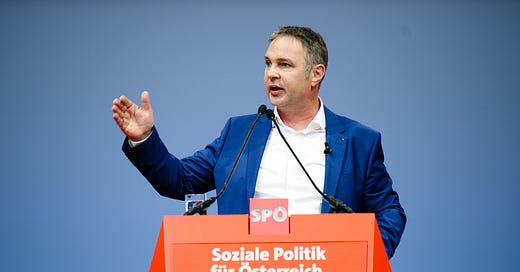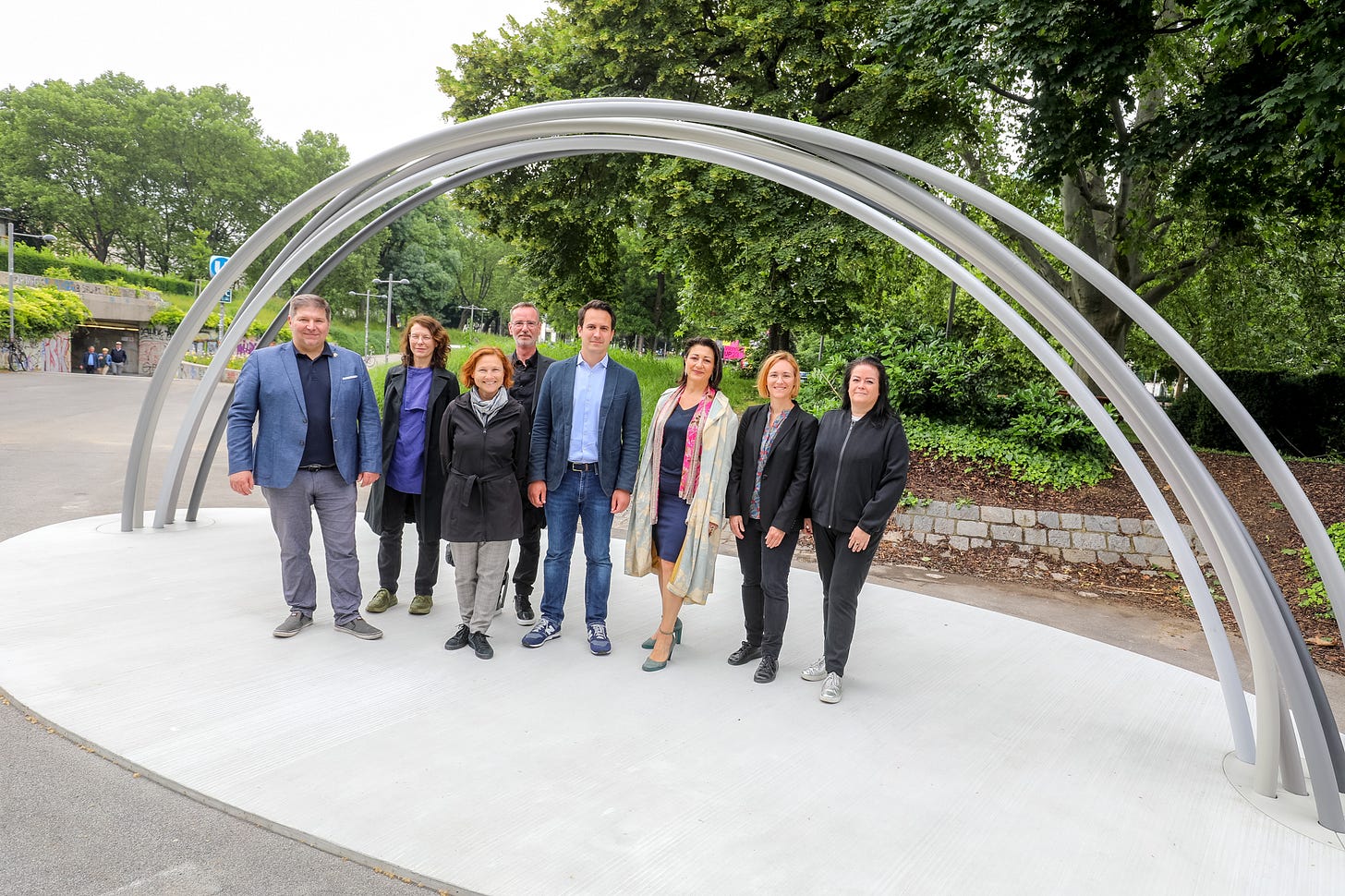Check, Check And Check Again
Andreas Babler has been elected the new leader of the Social Democratic Party, but only after an embarrassing mix-up led to recounts and resignations
Servus!
The result came somewhat sooner than expected. On Saturday afternoon, shortly after 15:30, Burgenland governor Hans Peter Doskozil was declared the new leader of the Social Democratic Party (SPÖ). He had achieved his lifelong dream, Doskozil proudly told party delegates after he beat out Traiskirchen mayor Andreas Babler 316 votes to 279—a narrower outcome than perhaps expected. The new SPÖ leader invited Babler up on stage for a show of party unity and promised that if he won the next election, he would not form a coalition with the far-right Freedom Party (FPÖ). Job done.
603 delegates participated in Saturday’s conference in Linz. The results showed that, of those, 601 voted in the leadership ballot. There were 596 valid votes and 5 invalid ones. Of the valid ballots, 316 went to Doskozil and 279 to Babler. But as eagle-eyed journalists including ORF moderator Martin Thür noted, those numbers didn’t add up: 316 and 279 make 595, not 596. Where did the missing vote go? Entreaties from journalists like Thür—though he was far from the only one—as well as discontent among furious party delegates triggered the electoral commission to go looking for the missing vote.
On Monday afternoon, having hastily called a press conference for 15:45, the head of the commission, Michaela Grubesa, announced the vote had been found: another spoiled ballot, bringing the number of invalid votes to six. But that was only half the story. During the search, Grubesa and her co-workers uncovered a far larger, graver error. She described it as a ‘technical failure,’ though it sounded more like human error. On election day, the tabulations from the count were incorrectly entered into an Excel spreadsheet, which led to the wrong result being announced. Extraordinarily, Babler had, in fact, won the leadership election, not Doskozil: 317 votes to 280.
At 16:30, attention turned to Burgenland. The result, Doskozil said crestfallen, his dreams crushed, was to be respected. He congratulated Babler on winning the election and announced that he would play no further role in federal politics. He would remain in Burgenland and tend, as it were, to his farm. Back in Vienna, one hour later, prospective leader Babler, speaking with gravity, called on the electoral commission to recount the votes one more time. Only then, he said, would he accept the party leadership. Babler apologized to members on behalf of the party for the way the leadership contest was conducted and pledged to lead a comeback for the SPÖ.
That recount—or re-recount—was held on Tuesday in the presence of an independent observer. It found that Monday’s recount was indeed correct: Babler had beaten Doskozil 317 votes to 280. Grubesa fell on her sword—perhaps she had to given the circumstances—and resigned from the electoral commission. With the result finally confirmed, Babler finally accepted and assumed the role of party leader. He announced he would bring forward 2024’s party conference to this fall, at which a vote would be organized to confirm him as leader. In the future, he said, the membership would vote directly for who should lead the SPÖ—and not conference.
The SPÖ’s leadership contest was supposed to bring clarity and party unity. Instead, it ended in embarrassment and ignominy, handing Babler far from the ideal start to his time in office. The nature of the denouement also means the party is about to experience a severe case of whiplash. On Saturday afternoon, the SPÖ was headed towards the political center under Doskozil; now, Babler has seized the wheel and made a sharp left turn. History dictates, in the absence of a natural left-liberal majority, success for the SPÖ means persuading enough conservative voters to join them on the path to social democracy. Babler’s leadership will show if there is another way to win: a return to core social democratic values. It he succeeds, the outcome could be transformative; if he fails, the result will see the FPÖ return to power and possibly seize the chanellorship. The stakes could not be higher.
Bis bald!
Thank you for subscribing to the Vienna Briefing. If you know someone who might be interested in receiving this newsletter, consider sharing it with them today.
The Vienna Briefing is a reader-supported publication. If you would like to support my work, think about sending me a tip via PayPal. Thank you to all contributors.
Furniture Store Giant Teeters
The furniture store group Kika/Leiner stands on the verge of bankruptcy. On Tuesday, the chain announced it was laying off 1,900 of its 3,900 employees and closing more than half its stores.
Inflation Falls; Population Grows
Inflation fell to 8.8 percent in May, down from 9.7 percent in April, according to initial estimates. Austria's population grew by 126,000 people in 2022, the highest annual increase since 1945.
New Memorial Unveiled
Vienna’s new Memorial for Homosexuals Persecuted During the Nazi Era was unveiled in Resselpark on Monday. The sculpture by artists Sarah Ortmeyer and Karl Kolbitz represents the shadow of a rainbow standing upon a swan’s egg.
The Vienna Briefing returns on June 21.





